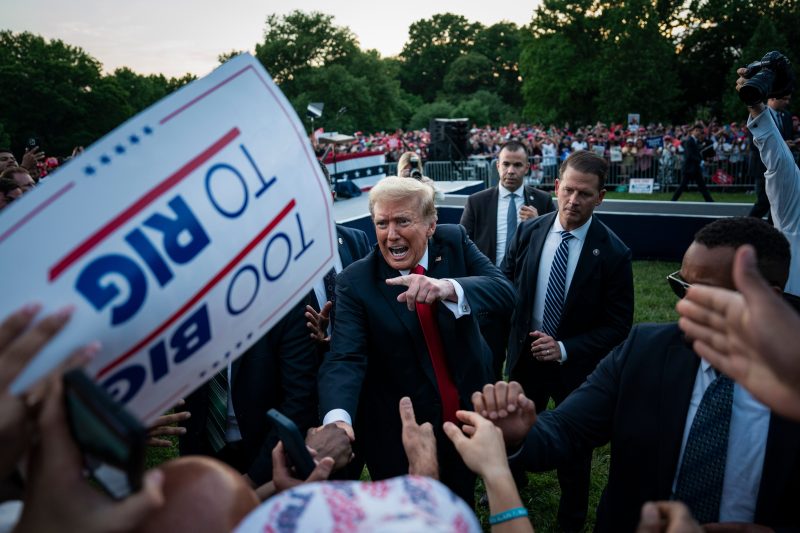In a strategic move to engage with minority voters, former President Donald Trump held a campaign rally in South Bronx, seeking to make inroads with Black and Latino communities. The event, which took place in a diverse neighborhood known for its cultural richness, was a bold attempt to broaden Trump’s base of support and challenge perceptions about his stance on racial issues.
Amidst a backdrop of skepticism and opposition from many within the community, Trump emphasized his administration’s purported achievements for minority communities, such as record low unemployment rates before the global pandemic struck. Advocating for his economic policies as a means to uplift marginalized groups, Trump painted a picture of opportunity and prosperity that he claimed would be further realized under his leadership.
The rally attracted a mix of passionate supporters and vocal critics, reflecting the deep divisions in American society that have characterized Trump’s tenure in office. While some attendees expressed gratitude for Trump’s efforts to address long-standing issues affecting minority communities, others condemned him for what they perceived as divisive rhetoric and harmful policies that exacerbated racial tensions.
One of the key themes of Trump’s speech was the need for unity and common goals across racial lines, as he sought to portray himself as a unifier rather than a divider. Trump acknowledged the historical injustices faced by Black and Latino communities, promising to champion their interests and work towards a more equitable society where everyone has the opportunity to succeed.
However, the rally also highlighted the challenges facing Trump in winning over Black and Latino voters, many of whom remain skeptical of his intentions and track record on crucial issues like civil rights, criminal justice reform, and immigration. Critics pointed to his administration’s controversial policies, such as the travel ban targeting predominantly Muslim countries and harsh immigration enforcement measures, as evidence of his disregard for minority communities.
Overall, Trump’s campaign rally in South Bronx served as a microcosm of the broader political landscape in America, where racial dynamics and identity politics continue to shape elections and influence voter behavior. As the country grapples with deep-seated inequalities and social injustices, the engagement of politicians with marginalized communities remains a critical aspect of building a more inclusive and equitable society.
The rally concluded with Trump reiterating his commitment to representing the interests of all Americans, regardless of race or background, and promising a brighter future for the country under his leadership. Whether his efforts in South Bronx will resonate enough to sway Black and Latino voters in his favor remains to be seen, but the event undoubtedly underscored the importance of reaching out to diverse constituencies in a deeply divided nation.
